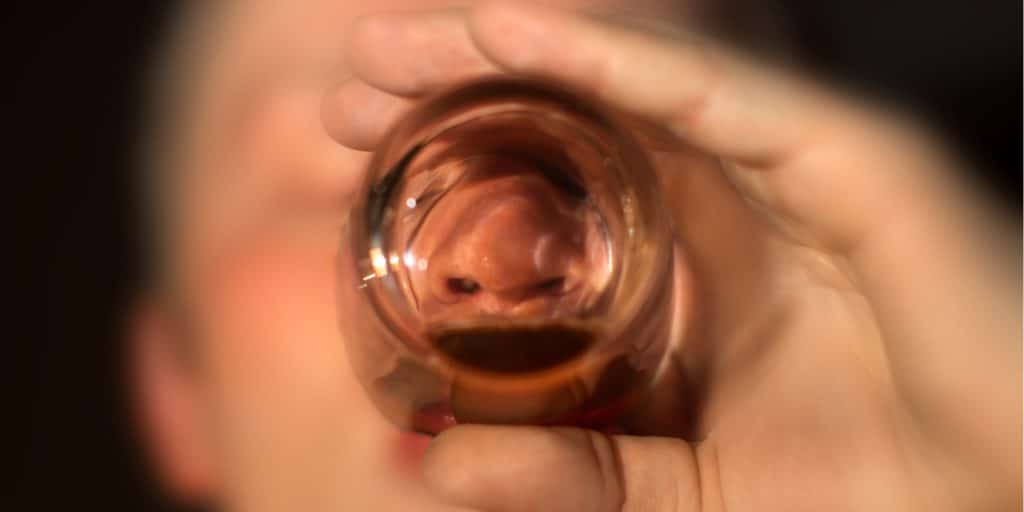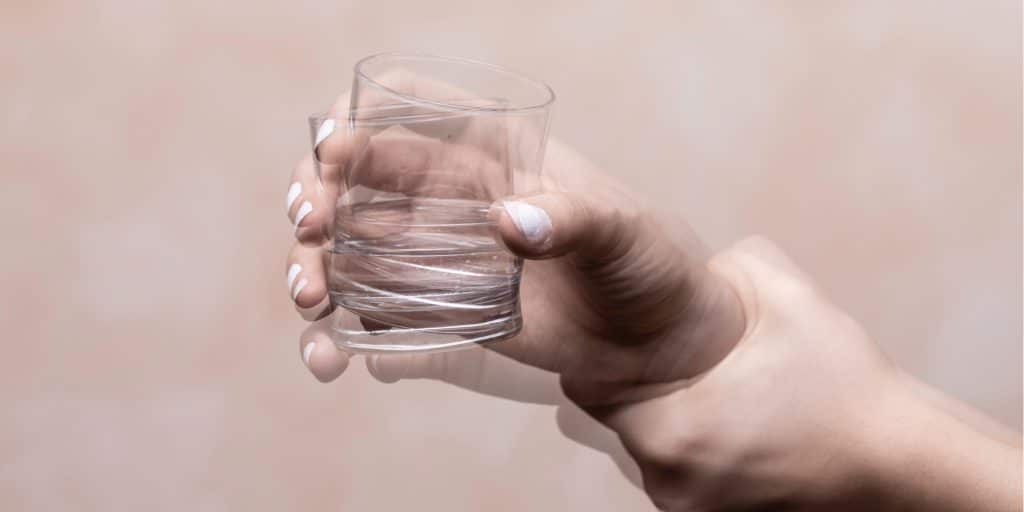
If you’ve ever experienced alcohol shakes, you’re not alone. Shaking after drinking is a commonly reported side effect of overindulging in alcohol. But what do alcohol tremors mean, and why do they happen? Learn more about alcohol shakes, what causes them, and how to stop alcohol shakes.
Alcohol tremors refer to the physical shaking that occurs after alcohol use. Usually, alcohol shakes occur in the hands, making it difficult to perform simple tasks like writing or typing. However, they may also occur in other areas of the body. Sometimes called “hangover shakes,” this involuntary movement is not usually dangerous itself but may relate to bigger issues caused by chronic alcohol use.
Table of Contents
Your Brain on Booze: The Alcohol-GABA Connection

The shaking that accompanies drinking can be explained by alterations in the brain and central nervous system. Alcohol shakes are often the result of an overactive nervous system caused by excessive alcohol intake followed by the absence of alcohol. This is because drinking alcohol causes the body to release GABA, the neurotransmitter responsible for creating the relaxed, euphoric feeling that often accompanies alcohol use.
In response to the increase in GABA, the body produces more glutamate, the excitatory neurotransmitter responsible for sending messages between nerve cells. These adjustments are the body’s attempt in keeping the brain’s chemistry in balance and to combat the depressant effects of alcohol.
Over time the body will come to rely on alcohol’s presence. When this occurs, the brain will produce less GABA and more glutamate in preparation for alcohol’s effects. If alcohol is not consumed, the brain is left with too little of the calming neurotransmitter (GABA) and too much of the stimulating neurotransmitter (glutamate). The result is an overactive nervous system that causes shaking and anxiety, among other ailments (e.g., “hangxiety”).
Hangover vs Alcohol Dependency

Alcohol shakes can be an unpleasant hangover symptom and are generally an indication of mild to moderate alcohol withdrawal. If you’re an occasional drinker who just happened to overdo it, hangover symptoms will likely resolve in a few days without any other major issues.
Hangover symptoms can include:
- Shaky hands
- Alcohol sweats
- Dehydration
- Fatigue
- Inflammation
- Elevated heart rate
- Low blood sugar
However, if you’re a regular drinker, alcohol shakes could also be a sign of dependency or addiction. In general, alcoholism is defined as continuing to drink despite experiencing negative consequences. For example, consequences could be felt socially, professionally, or in the realm of personal health.
In addition, alcohol addiction can present as a physical dependency, a psychological addiction, or a combination of the two. Signs of physical addiction could include things like shaking after drinking, intense cravings, and alcohol tolerance. Behavioral signs of alcohol addiction could include the following:
- Not being able to abstain from drinking
- Hiding alcohol use from others
- Avoiding occasions that don’t include alcohol
- Irritability when alcohol isn’t an option
- Failing to meet responsibilities at work or at home
Once physically dependent on alcohol, the body will experience alcohol withdrawals if alcohol is suddenly absent. Alcohol shakes and other signs of withdrawal can begin anywhere from six hours to several days after the last drink. Mild symptoms will begin sooner, worsening as the body attempts to readjust to the lack of depressants (alcohol). In severe cases, a dangerous form of withdrawal called delirium tremens (DTs) may occur. At this point, finding help is essential. Symptoms of DTs include severe shaking or seizures, hallucinations, and psychosis.
How to Stop Alcohol Shakes
Whether you’ve experienced alcohol tremors occasionally after a night of binge drinking or as a more regular event, your body is sending you a message that it’s time to cut back on alcohol. The best way to stop alcohol shakes is to detox from alcohol and break alcohol dependency. While this is easier said than done, addiction help is available.
The best way to detox from alcohol is to find an accredited addiction treatment facility experienced in treating both physical and psychological addiction. Further, because alcohol tremors can also be a sign of liver disease, it is important to monitor symptoms and receive a medical evaluation.
Alcohol Addiction Treatment in Las Vegas, Nevada

At the Veteran’s Journey Recovery Center (VJRC), we understand that committing to addiction treatment is a big first step in recovery. However, you can rest assured that the treatment team at VJRC is well versed in treating alcohol use disorders.
There are many effective treatment methods for alcohol addiction leaving you with options in how to approach alcohol treatment. Usually, alcohol addiction therapy begins after alcohol detox. This ensures that no alcohol remains in your system and focus on behavioral components of alcohol use can begin. After alcohol detox, inpatient residential treatment is often recommended in order to fully address the roots of addiction. At the Veteran’s Journey Recovery Center, components of inpatient therapy could include:
- Individual and group therapy
- Complementary therapies (i.e., yoga and recreational therapy)
- Cognitive behavioral therapy (CBT)
- Dialectical behavior therapy (DBT)
- Acceptance and commitment therapy (ACT)
- Motivational interviewing (MI)
- Mindfulness and meditation
- Clinical hypnotherapy
- 12-step recovery groups
In addition, at the VJRC, we commit to providing a continuum of care that will holistically address both your mental and physical health needs. Our continuum of care is also a commitment to support you throughout your recovery journey before, during, and after treatment at VJRC.
Deciding to commit to alcohol addiction treatment is a huge step towards recovering from addiction. At the Veteran’s Journey Recovery Center, you will be fully supported throughout your transition into recovery. To get started on your recovery, contact one of our admissions specialists at 888-828-2623, or use our confidential online form to ask us anything that comes to mind.
Alcohol Shakes FAQs
If alcohol use is suddenly stopped, the brain is left with too little of the calming neurotransmitter and too much of the stimulating chemical. This results in symptoms like shaking and anxiety.
The post Alcohol Shakes: What Shaking After Drinking Means appeared first on VJRC.
Source
Original Author: Veteran’s Journey Recovery Center

